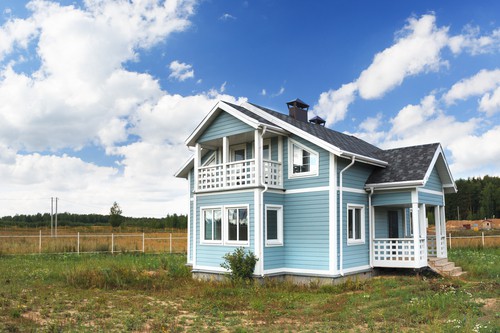Specialty Dwelling Insurance: Promoting Septic Safety
Posted on: February 26, 2015 by Aegis General

According to the U.S. Center for Disease Control, it is estimated that at least 15% of the population of the United States is not served by public water systems. Instead, these homes rely on wells and small water systems which are often not designed to federal building standards. For example, homes in rural and older areas that have no public sewer system often rely on septic systems take care of and get rid of your waste water.
Septic tank systems are the largest contributors of wastewater to the ground as well as the most frequently reported sources of groundwater contamination in the United States. Bacteria, viruses, and parasites are pathogens found in wastewater which can be hazardous to humans and can contaminate nearby drinking water supplies or recreational surface water. As such, the primary reason for safe disposal of sewage is to prevent the spread of disease.
When septic systems are designed well, built to code and maintained regularly, they are sustainable and functional solutions to waste water storage and removal. However, when they are not kept in good working order septic failure can become a disaster. Septic system failure and subsequent water contamination is one of the most costly and dangerous hazards of living in any dwelling which depend on septic systems. As such, it is important that your clients understand these risks and how to take the proper precautions to avoid losses due to contamination, property damage, illness and more.
It is also important that clients understand how to prevent such problems or else they will likely face exposures to property, injury and other losses. Here are a few tips to pass on to clients about septic system maintenance:
- Have all wastewater storage systems regularly maintained and pumped. How frequently wastewater needs to be removed depends largely on tank size and number of individuals in a household.
- Conserve water. The less wastewater generated, the less frequently the system will need to be cleaned and fixed. Conserving water will also decrease strain on fresh water reserves.
- Redirect surface water flow away from the system’s leach field to avoid flooding, over saturation, sewage backups and other complications.
At Aegis General Insurance Agency we strive to help owners of nonconventional and specialty homes find the insurance solutions they need to protect themselves, their families and their assets. We offer a variety of specialty dwelling insurance solutions including dwelling fire coverage, unoccupied home, manufactured housing coverage and more. To learn more about our personal lines and becoming a producer with us, contact us today at (866) 662-5752.
Posted in: blog Specialty homeowner's insurance
Search
Recent Posts
- Brett Hyde named President at Aegis Agribusiness Division
- K2 Insurance Services is expanding with the acquisition of Coast to Coast.
- K2 Insurance establishes Strategic Program Administration Partnership with Homesite Insurance Group
- K2 Insurance Acquires Assets, Operations of Nebraska’s Mid-America Risk Managers
- K2 Acquires Rockhill Insurance Group’s General Liability and Gas & Propane Distribution Businesses
Archives
- April 2021
- August 2020
- January 2020
- January 2019
- March 2018
- July 2017
- December 2016
- November 2016
- October 2016
- September 2016
- August 2016
- July 2016
- June 2016
- May 2016
- April 2016
- March 2016
- February 2016
- January 2016
- December 2015
- November 2015
- October 2015
- September 2015
- August 2015
- July 2015
- June 2015
- May 2015
- April 2015
- March 2015
- February 2015
- January 2015
Categories
- Announcement
- Blanket Accident
- blog
- Dwelling Fire
- Earthquake Insurance
- Healthcare
- Homeowners Insurance Program
- Manufactured Home
- Motorcycle
- Motorcycle Insurance
- Municipality Insurance
- Public Entity Insurance
- Specialty homeowner's insurance
- Specialty Insurance
- Specialty Property
- Surety Bonds
- Traveling Trailer Insurance
- Uncategorized
- Unoccupied Property
- Vacant Dwelling Insurance Program
